The City of San Diego has a historic opportunity to upgrade entire neighborhoods with clean energy and pollution-free appliances when it finalizes the amendments to the Energy Cooperation Agreement with San Diego Gas & Electric (SDG&E) in the coming weeks. The City of San Diego must update this agreement to require that SDG&E submit at least five neighborhood decarbonization pilot sites located within the city –with at least two in flood zone areas impacted by heavy storms last year–for the The Neighborhood Decarbonization Act (SB 1221) program.
California lawmakers recognized the enormous benefits of neighborhood decarbonization when they passed SB 1221 in 2024. This groundbreaking legislation enables the California Public Utilities Commission to approve 30 voluntary pilot projects that redirect utility funds from gas pipeline replacements toward cost-effective neighborhood decarbonization projects.
Launching neighborhood decarbonization pilots in San Diego can:
- Advance the city’s Climate Action Plan
- Save the city and San Diegans money
- Create healthier and safer neighborhoods, especially for flood-impacted San Diego homes
Advance the Climate Action Plan: San Diego has a progressive climate goal of reducing methane gas usage in existing buildings by 45% by 2030 and 90% by 2035. It’s abundantly clear we have to transition off of gas and we can’t wait. The city needs large-scale solutions like neighborhood decarbonization and the city leaders have an opportunity to act RIGHT NOW!
Save Money: California’s gas utilities are on track to replace 8,900 miles of gas distribution mains by 2045 at a projected total cost of $43 billion, which will be shouldered by gas customers. Neighborhood decarbonization can save households money on energy bills by avoiding gas infrastructure costs. Electrifying homes to be powered with highly efficient, pollution-free appliances like heat pumps, can also lower heating bills because heat pumps are more efficient than gas furnaces.
And neighborhood decarbonization will not cost the city money. In fact, utilities can divert their spending from gas infrastructure to cost-effective electrification. And the city can utilize existing programs and organizations that are already helping to retrofit homes in communities that were damaged by the floods last year. Let’s stop spending money on gas pipe repairs and elevate ourselves to where the future is headed towards: more electrification and less gas.
Create healthier and safer neighborhoods: When homes and neighborhoods go all-electric, they have safer indoor and outdoor air. That’s because electric heat pumps and water heaters don’t combust fossil fuels, which generate toxic gases like nitrogen oxides (NOx) and carbon monoxide, or particulate matter (PM2.5), which penetrates into the lungs. This pollution can cause asthma and respiratory and cardiovascular problems, especially for vulnerable populations like children and the elderly. We can’t keep using gas when we know it hurts the health of our families and communities.
Upgrading homes with heat pumps can also boost climate resilience with life-saving cooling during dangerous heat waves. And it can filter the air against unhealthy air quality days and wildfires.
One year after Mayor Todd Gloria declared a State of Emergency after several San Diego neighborhoods were devastated with flooding, our communities are still supporting residents to repair and rebuild homes. Communities of Concern like these could be the first to benefit from Neighborhood Decarbonization projects––and receive highly efficient, pollution-free appliances like heat pumps.
San Diego Leaders must make the decision to include five neighborhood decarbonization pilots in the Energy Cooperation Agreement. Our community is depending on the City of San Diego to make the choice that has the city’s best interest at heart. We need neighborhood decarbonization to support the transition off of expensive, polluting gas systems––and to create safer, healthier neighborhoods.
Tanisha-Jean Martin was born and raised in Southeast San Diego, graduated as a McNair Scholar from San Diego State University where she triple-majored in Geography, Sociology and Political Science. She served as the Black Graduate Student President while earning her Masters at the University of San Diego. Her extensive community involvement and advocacy leadership focuses on the intersection between equity, climate, and community resilience. She has worked with the City of San Diego’s Park and Recreation Department, the United States Department of Agriculture, in the California Legislature, and more.
She currently serves as the
- Climate Community Director at San Diego Urban Sustainability Coalition
- Equity Working Group Chair of the San Diego Building Electrification Coalition
- Chair of The City of San Diego’s Climate Advisory Board


